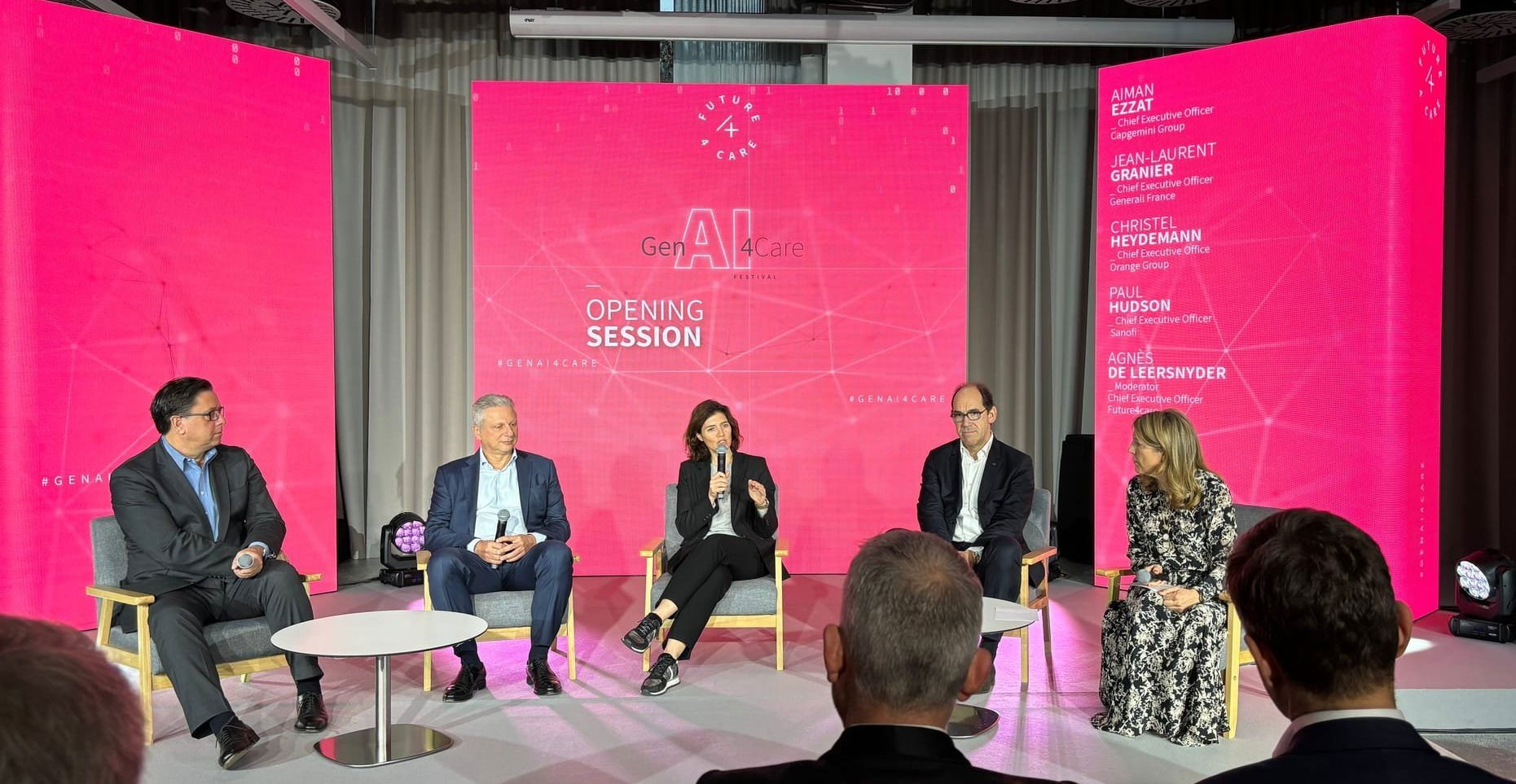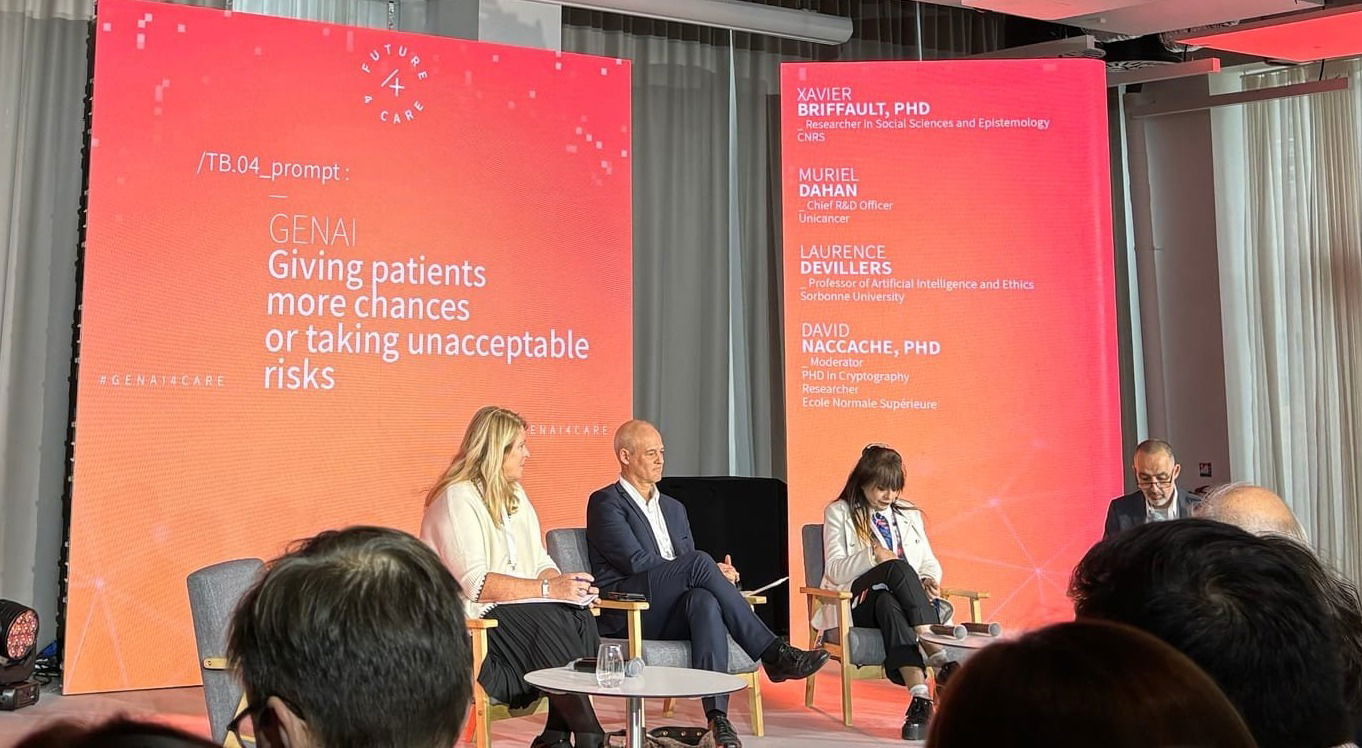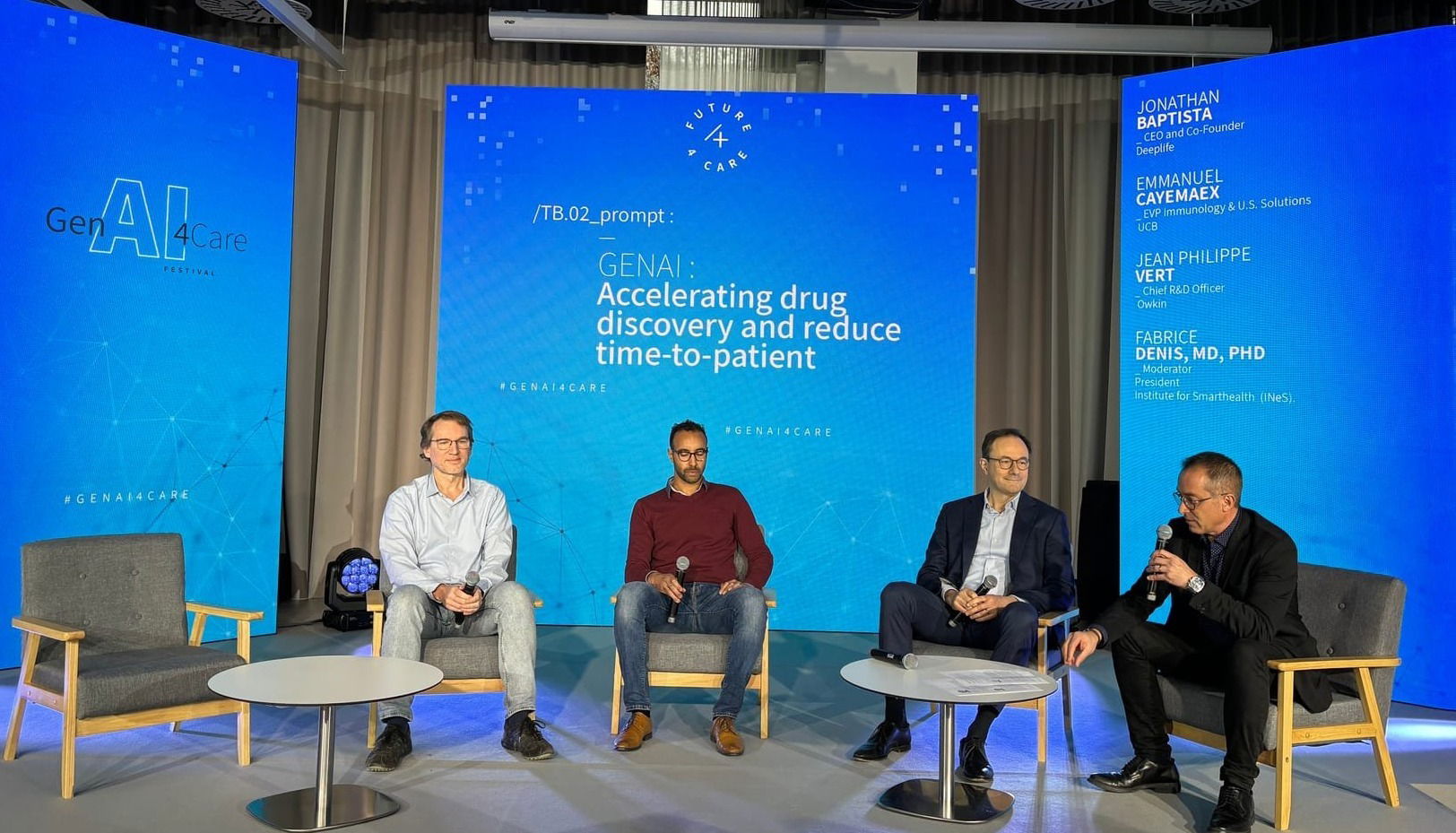Harnessing the Power of AI to Transform Healthcare

Amidst the chill of a winter day, the GenAi event hosted by Future4Care on December 18th, 2023, stood as a beacon of progress, igniting a profound exploration into the transformative potential of generative artificial intelligence (AI) in healthcare. This symposium highlighted two critical themes: value creation and efficiency—both heralded as the catalysts for AI's widespread adoption in this vital sector.

Value Creation: Unveiling New Frontiers in Medicine
The event showcased how AI transcends traditional data analysis, pioneering the generation of groundbreaking knowledge within the medical field. Emphasizing the technology's preventative capabilities, discussions centered on how AI could identify early signs of addiction and other conditions, offering new hope where healthcare professional shortages present ongoing challenges. Additionally, "stay at home" healthcare solutions, fortified by AI, have become increasingly significant to insurers, representing a new frontier for patient independence and support.

The Cost-Benefit Balance: Economic Viability in the Age of AI
The fiscal landscape of AI development is complex and vast. The investment in AI infrastructure—including the physical, telecommunication, and energy sectors—is substantial, reflecting the necessity for robust foundations to support generative AI growth. A keen understanding of the costs tied to AI training, model construction, and utilization is vital, particularly as the democratization of AI to millions can dramatically raise expenses. Thus, specialized models targeted at experts remain an economically viable approach.

Humanity at the Helm: Ethical AI for Personalized Care
The summit put forth a strong message about the importance of human oversight in AI, emphasizing technology's role in personalizing care and streamlining medical processes. The influence of generative AI was discussed in the context of three societal domains—education, societal norms, and regulation—suggesting a future deeply interwoven with AI's capabilities.

The Brain Drain and Computational Might: Shaping AI's Future
A significant concern highlighted was the loss of talent in the fields of mathematics and information science, with calls for public policy interventions to retain and attract the brilliant minds necessary for AI's evolution. The importance of computational power was also underscored, noting the advantages reaped by companies providing the necessary hardware for AI processes.
Collaboration and Innovation: The Synergy of AI and Human Ingenuity
The synergy between AI and human creativity was recognized as a critical driver of innovation. Examples included Aqemia's accelerated research into new molecules and Quinten Health's identification of optimal existing molecules, showcasing the collaborative efforts needed to push the boundaries of AI in healthcare.
AI in Clinical Review: Beyond Medicine
The capabilities of AI extend into the realm of clinical review, with examples such as DeepLife's work on Lupus highlighting how AI can reevaluate therapeutic strategies and monitor patient benefits during the latter stages of clinical trials.
Evaluating AI: Risks and Rewards
The discussions at GenAi were balanced, acknowledging the need to measure the tangible benefits of AI against potential risks before addressing concerns regarding AI's capacity to inadvertently reinforce cognitive biases. These discussions brought to light the necessity of critical thinking and the careful implementation of AI within the healthcare framework.
Conclusion: The Moral Compass in the Age of AI
As generative AI advances, the healthcare industry is called upon to navigate its development with a moral compass, ensuring that the human element remains central to the healthcare ethos. The future of healthcare is poised to be revolutionized by responsibly and ethically embracing generative AI, promising improved patient care, better health outcomes, and enhanced well-being on a global scale.